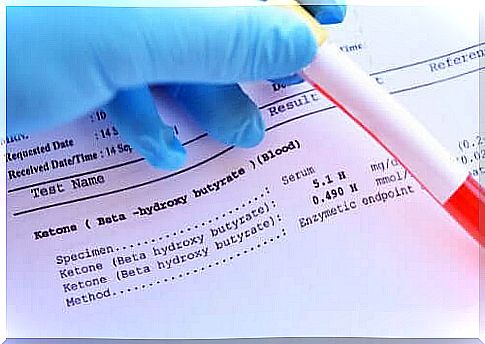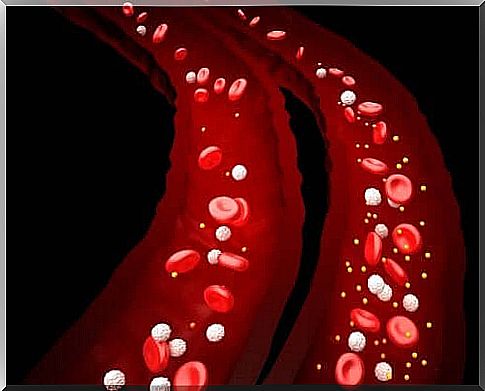Metabolic Acidosis: Causes And Treatment

In metabolic acidosis, there is a reduction in the bicarbonate concentration and, therefore, an acidification of the pH of the blood. This reduction is associated with a compensatory decrease in the partial pressure of carbon dioxide.
It is a disturbance of the body’s acid-base balance. It involves the aforementioned balance and consequently causes an abnormality in the pH of the blood. There are different levels of severity, some of which can result in patient death.
Basically, metabolic acidosis is a disturbance of the acid-base balance, characterized by the lowering of the pH of the blood, a reduction in carbon dioxide levels and a hyperventilation pattern as a compensation mechanism.
Causes

Usually the onset of metabolic acidosis is due to several mechanisms that are activated simultaneously. Among them, we can list the following:
- Excessive intake or excessive endogenous production of non-volatile acids. For example, when there is diabetic cetoacidosis, lactic acidosis or acidosis produced by the intake of acid precursors.
- Impaired regeneration of bicarbonate through the kidneys (acidosis in acute or chronic renal failure) or impaired excretion of protons in the distal tubules (distal tubular acidosis).
- Loss of basic substances: this loss can occur both in the kidney and in the digestive system.
Metabolic acidosis can be compensated through the respiratory tract, i.e. by hyperventilation. Thanks to it, the partial pressure of carbon dioxide is reduced and the pH of the blood is normalized, in part or in whole.
What are the symptoms of metabolic acidosis?
Symptoms of a metabolic acidosis are not specific. This is why diagnosis can be complicated unless the patient has clear directions for arterial blood gas sampling.
The symptoms experienced by patients include:
- Chest pains.
- Palpitations.
- Headache.
- Altered mental status: including severe anxiety caused by hypoxia, decreased visual acuity, nausea, vomiting, abdominal pain, impaired appetite and weight loss.
People with metabolic acidosis tend to show symptoms through a type of breathing known as Kussmaul’s breath. We can define it as deep, fast and associated with classic diabetic ketoacidosis.
On the other hand , extreme acidemia involves neurological and cardiac complications :
- Neurological: lethargy, lightheadedness, coma and convulsions.
- Cardiac: arrhythmias and slowing of the response to epinephrine can be produced. Both situations lead to arterial hypotension.
- Severe metabolic acidosis can induce shock or death.
Diagnosis

These tests can help diagnose acidosis and determine whether the cause is respiratory or metabolic in nature. Diagnostic tests can include:
- Arterial blood gas analysis.
- Basic Metabolic Panel : This is a set of blood tests that measure sodium and potassium levels, kidney function and other chemicals and function.
- pH of the urine.
- Ketone bodies in urine and blood.
- Lactic acid analysis.
- Other.
What treatment is applied in case of metabolic acidosis?
Treatment is intended for intervention on the triggering cause of the disorder. Patients with kidney failure require hemodialysis, which is sometimes also chosen for people with ethylene glycol, methanol, and salicylate intoxication.
In cases of severe acidosis, sodium bicarbonate is usually given. However, it should be done with caution, as in some cases it can be harmful.
When metabolic acidosis is a consequence of the loss of bicarbonate ions or the accumulation of inorganic acids, the treatment with bicarbonate is usually safe and suitable for the case.
However, when the disease is due to the accumulation of organic acids, this type of therapy is controversial, since it does not significantly lower the mortality rate and can be associated with some risks.
Despite these and other controversies, most experts still recommend intravenous administration of bicarbonate in cases of severe metabolic acidosis (which is the one with pH values below 7.1).









